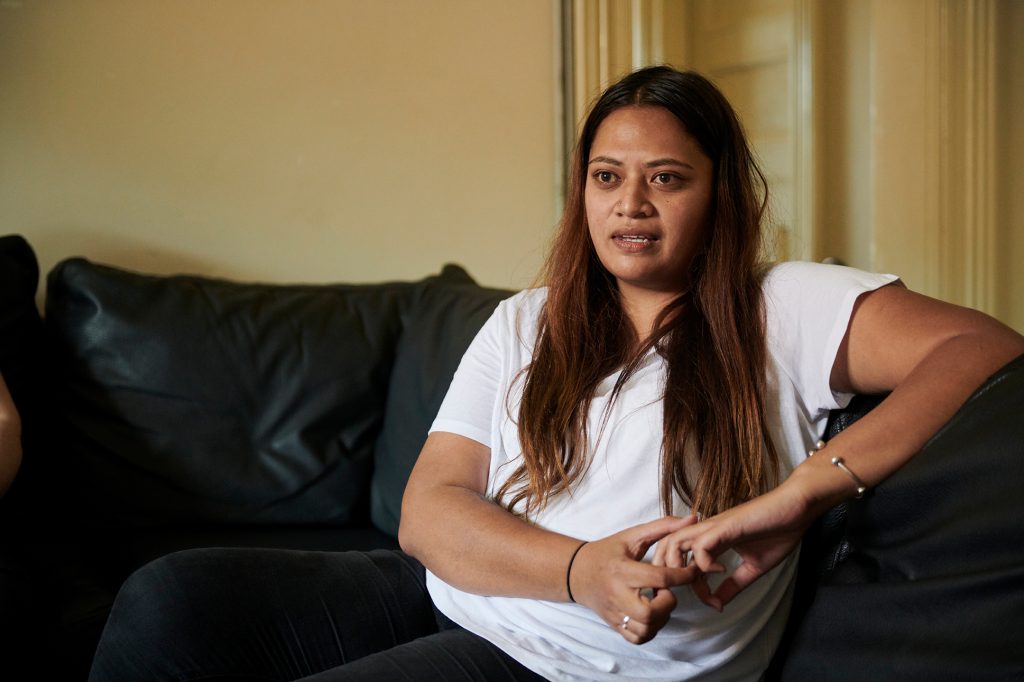Common signs of someone who may be suicidal
by Kat Rowe | November 24, 2020
What you can do and Stride’s Safe Space
In 2018, over 3,000 Australians took their own lives, and it is estimated that the number of people who attempt suicide each year could be over 60,000. Intrinsically linked to this is the fact that around 25 per cent of Australians report feelings of loneliness or say that they have no one to talk to about their situation or about how they feel.
With this in mind, simply being there for someone, providing them with someone to talk to and to confide in and demonstrating that they are loved and valued can make a lot of difference. It is also important to seek professional medical help if you or anyone you know is showing signs of being suicidal.
A Safe Place
At Stride we provide a Safe Space for those living in the Blacktown area and surrounds in Sydney. No referrals are required to access the service and you can have a confidential chat with our qualified team. You can also view our residential page for more information on mental health housing.
But what are typical suicide signs and thoughts from people and what should you be looking out for? What are some of the key signs of suicidal behaviour?
Let’s take a look at some signs that could be symptoms of a wider problem.
What to look for: Early Signs Someone is Suicidal

- Negative Self-Talk — If someone is constantly talking themselves down and eroding their own self-esteem with negative self-talk, this may be a warning sign.
- Withdrawal from social situations or groups — If a friend has suddenly stopped texting or answering calls or keeps on cancelling meet-ups, this may be a sign that you should reach out.
- Periods of sadness or anger that either come on quickly or last for a long time: It’s natural to get sad from time to time, but depression is deeper and more complex than a case of “the blues.” Look out for intense emotional swings or periods of sadness and anger that just won’t go away.
- Making casual references to suicide or death: Be aware of casual references to suicide or death, especially if this is out of character with the person’s usual personality. Even if the individual is known to be comfortable with dark humour, references to death or suicide should still be taken seriously.
- Displaying hopelessness or excessive pessimism: People consider suicide when they decide that death may be a better option than remaining alive. Losing hope for the future or becoming overly pessimistic may be a sign of this.
- A sudden calm or resolve following sadness or anger: Once someone has resolved to end their life, they may suddenly feel calmer, and this may be evident in their demeanour and behaviour.
- Engaging in risky behaviour: In some cases, there may be very overt signs that someone is suicidal, including self-harm or drug use.
- Crises or tragedies in personal or professional life: A personal tragedy or serious disruption at work may trigger someone to become suicidal. Remember that not all trauma is visible or obvious to outsiders.
- Major personality changes: A major change in the personality of an individual may be a suicidal sign or indicator.
- Direct threats of suicide or serious consideration: Never discount a direct threat of suicide. Such threats may seem extreme or outlandish, but they should not be dismissed, as they may be a serious sign that someone is suicidal.
Further support from Stride — an inclusive Safe Space in Blacktown
Here at Stride, we are proud to operate a Safe Space, serving residents of Blacktown and the surrounding area. You’ll find our Safe Space at 24 Panorama Parade.
This is a place that, we feel, provides a safe, welcoming and supportive environment for anyone experiencing emotional distress or disturbance. We provide a sensory room and confidential chat services with our qualified mental health professionals
If you or someone you care about needs support, you can visit us Wednesday to Saturday at 3 p.m. to 9 p.m. or call +61 402 511 436.
Alternatively if you or someone you know need support outside of these hours or crisis support call Lifeline on 13 11 14 now.
More Useful Reading
- Dimensions Of Wellness
- Financial Wellness
- Occupational Wellness
- How a great nights sleep can improve your mental health
- What is NDIS Support Coordination
- Mental Health Services
- Mental Health Housing

